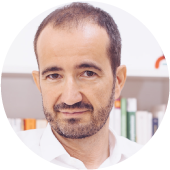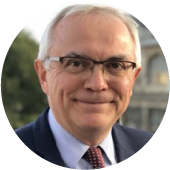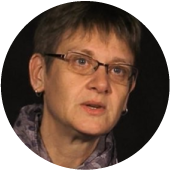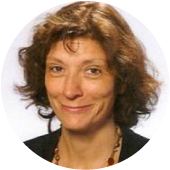
This conference will take place face-to-face (AgroParisTech Amphi B1, place de l'Agronomie - 91120 Palaiseau ) and remotely (the access link will be sent to subscribers by email the day before the event).
Systems by nature
Institute of life and environmental sciences and industries, integrated into the University of Paris-Saclay, AgroParisTech trains people to study ecosystems to better interact with them, feed populations while preserving natural resources, and sustainably manage territories. It is an international reference institution in 4 areas: agriculture and forestry; food and non-food processing; environment ; health. Its 25,000 alumni irrigate all sectors of the economy and society, in particular the public sector and associations. Its Foundation allows it to support innovative projects, at the forefront of sustainability issues.
Systemic by nature, the businesses of AgroParisTech and its community cross all levels of life and society, from molecular biology to international geopolitics. However, the systemic approach is not taught there in itself - despite its growing need to overcome the contradictions of a "breathless" economy, in the words of a group of students when they handed in their degrees in April 2022.
This symposium will launch a reflection on the practice of systemic sciences at AgroParisTech and, beyond, in its entire community, in the service of a living and viable future.
The speakers and their conference

Olivier BROSSEAU
Why a conference on careers in the systemic approach organized by a school specializing in mental health and coaching (lact), with the participation of a major reference school in the life sciences?
The Palo Alto School is one of the original references of systemic thinking, and if systemic sciences have subsequently undergone many developments, this School has remained alive thanks to the Mental Research Institute and other representatives of this current, particularly in Europe. . It is characterized by the will to work not only on the study of the operation of the systems, but also on the identification and the implementation of the strategic levers of change, which make it possible to overcome blockages such as those encountered today in ecological and social transitions. With the questions raised by the worrying evolution of the interactions between Man and his environment, it is time to give back all its place to this powerful approach, by nature transdisciplinary.
Strategic coach, therapist in strategic systemic approach and associated with LACT – center of consultation, training and research representing the School of Palo Alto in France. Trainer on the challenges of presenting stress and psychosocial risks; teacher at the IAE Paris, Master of Administration and Business, “Organizations and Behaviors” module. Co-author of When Work Hurts, and Strategies for Change, 16 Therapeutic Prescriptions.

Anne GOUYON
Moderator
Are the agros the Mr. and Mrs. Jourdain of the system?
The life sciences, ecology in particular, are based on the study of relationships and emergent properties of systems, both their homeostasis and their dynamics. However, agros are rarely trained in the epistemological bases and in the powerful tools of the systemic approach, without which we will continue to destroy our relationship with the living, failing to appreciate their complexity and beauty. The Strategic Systemic School of Palo Alto, born of a transdisciplinary current intended to use systemic sciences, after the Second World War, to answer the questions raised by this destruction, seems particularly relevant in the face of new global risks. How can AgroParisTech, its Alumni, its Foundation and their partners "make a system" and use these approaches to gain leadership in new systemic sciences?
Presentation of the speakers.
Agricultural engineer and Dr. in Social Economic Sciences (AgroParisTech-Univ. Paris VII), Master of Clinical Psychology trained in the strategic systemic approach of Palo Alto (Univ. Paris VIII-LACT), Knight in the National Order of Merit. President of AgroParisTech Alumni, administrator of AgroParisTech and its Foundation. Systemician, 30 years of commitment to sustainable development in research and teaching, expertise and entrepreneurship.

Laurent BUISSON
Through its 4 areas of intervention in agricultural and forestry production; food and non-food transformations, natural resources and the environment, human health – and without forgetting the information systems which are at the heart of life like new technologies – AgroParisTech cannot and does not impasse on the systemic approach. We are therefore well placed and well equipped to contribute to the development of this teaching, and the research and innovations that necessarily accompany it, in the diversity of currents that cross the approach, or rather the systemic approaches with our academic and non-academic partners. academics in France and abroad.
Graduate of the École Polytechnique and the National School of Rural Engineering, Water and Forests, Dr. in computer science and holder of an authorization to direct research (Univ J. Fourier of Grenoble). Director of AgroParisTech since 2021, after a career at Cemagref (now INRAE), at the French Embassy in Chicago, at the MESRI Research and Innovation Department and at Pierre and Marie Curie University where he was notably Vice-President of Development and Economic Partnerships.

Nathalie FRASCARIA-LACOSTE
Ecology is a systemic science by nature, since it is based on the study of the relationships between living beings (individuals, communities, species, etc.) and their environment, from a dynamic perspective. This systemic approach is the only way to find forms of interaction that make it possible to restore ecosystems, or in any case to allow them to restore themselves, in an ecological engineering that involves observation, understanding the complexity, and not by a "linear" omnipotence. It is good to work with and not on the systems. Developing the teaching of systemic methods, their epistemology, their place in the sciences and the misuse that can be made of them would better equip our students and graduates, who are increasingly demanding knowledge in the service of commitment.
Dr. in Sciences (ecology) and holder of an authorization to direct research (Univ. Paris-Sud XI), professor in evolutionary ecology, ecological engineering at AgroParisTech and director of the Ecology, Systematics and Evolution laboratory at Univ. Paris Saclay, where she chaired the Department of Life Sciences and Institutional Health. Invested in the evolutionary genetics of forest trees, ecological engineering and sustainable management of territories, including the role of actors, impact measurement and public policies in terms of nature protection.
She was the pilot of the Ecology group for the book "Manual of the Great Transition, Forming to Transform" (Collectif FORTES, Editions Les Liens qui Libérant, 2020) and co-author of the small manual of the great transition "Incarner l' ecology, opening up to living worlds" (Les Liens qui Libérant, 2023) .

Sophie DEVIENNE
In the footsteps of René Dumont, the UFR of Comparative Agriculture and Agricultural Development systematically and dynamically studies the agrarian sector of contemporary societies and applies itself to discovering the conditions for sustainable agricultural development. It is based on a global and multidisciplinary approach that combines different complementary scales, from the plot (crop system) to the farm (production system) and the territories (agrarian systems) to study the concrete practices of farmers, their diversity and their evolution in connection with the transformations of ecosystems, techniques and socio-economic conditions. Sophie Devienne will present this approach, illustrating with one or more examples how it makes it possible, in the field, to formulate a diagnosis and to understand the conditions for the development of production systems that are more sustainable from an environmental, but also economic and social point of view.
Agro-economist and geographer, specialist in agrarian systems and their evolution, professor of comparative agriculture and development, member of the Academy of Agriculture. After her doctorate, she pursued research on the conditions and methods of agricultural development in various countries of the North and the “Souths”, and on the agroecological transition in France. She is authorized to direct research in human, economic and regional geography (Univ. Paris X Nanterre).

Elias CHOULI

Tadeg GRALL
Tadeg and Elias will present how they experienced the systems approach during their studies, illustrating it with a concrete case: their action with the agroparistech community to safeguard the heritage of the Grignon educational site. This historic campus, built incrementally since the 19th century by its users, illustrates the importance of systemic reasoning. It is inserted in its territory, maintains a balance with the experimental farm, and is endowed with an important scientific and symbolic heritage, as many components with which it forms a system. Neglecting these different components has led the different players to propose analyzes and takeover projects that are unsuitable for all the components of the site. Working on this specific case has convinced us of the accuracy of the system for understanding the complex problems of land use planning and the resulting conflicts.
Committed students, founders of the Circle Association intended to lead a reflection and a collective mobilization for the future of the historic site of AgroParisTech in Grignon, Elias Chouli and Tadeg Grall are finishing their studies in their third year at AgroParisTech (Master's level).
Their gap-year internships have already taken them to Vietnam (Elias) and Lebanon (Tadeg). They also express themselves in journalism and student life, or with the AgroParisTech Foundation, in which Tadeg is an administrator and Ambassador.

Sylvie BENARD
Sylvie Bénard will present the commitments of the AgroParisTech Foundation, shedding light on her professional experience of relations between business, society and academic bodies. Far from being limited to teaching and research, the systems approach is everyone's business, but how to practice it, make it live beyond a name that everyone seems to want to appropriate? What more concretely do the Agros bring thanks to their training in the system? How can we promote and develop these skills in our network?
While the AgroParisTech Foundation is going through a major phase in its development, it will discuss its present and future role in getting the actors of innovation and the economy to work "in a system", committed students and teachers and researchers from the 'School and University.
Agricultural engineer and holder of a doctorate in agronomic sciences, former director of the Environment department of the LVMH Group, Sylvie Bénard has chaired, co-founded or supported numerous flagship sustainable development projects within organizations such as ORÉE, Humanité and Biodiversity, the FRB, or even the Inspire Institute. Expert passionate about environmental issues and ecological transition, she supports organizations towards social and environmental responsibility with her company La Dame à la Licorne.




